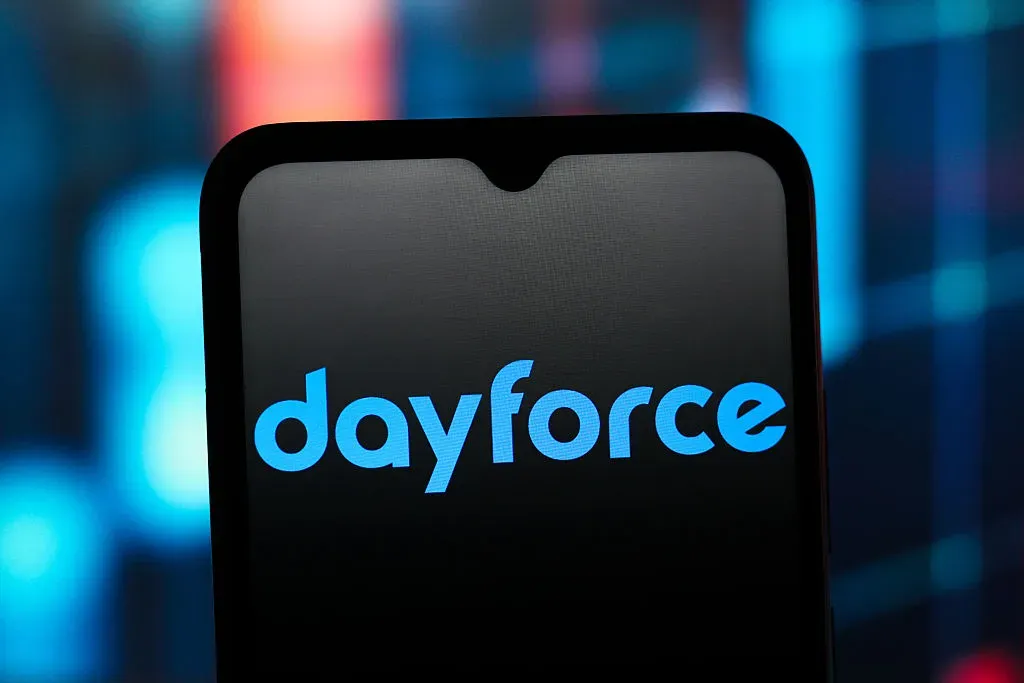When Silicon Valley Rewrites the Paycheck: Inside the $12.3 Billion Deal That Signals the End of Public Markets' Faith in Human Capital
MINNEAPOLIS — On August 21, 2025, Dayforce Inc., a global leader in human capital management technology, announced it had entered into a definitive agreement to be acquired by Thoma Bravo, a leading software investment firm, in an all-cash transaction valued at $12.3 billion.

Under the terms of the agreement, Dayforce stockholders will receive $70.00 per share in cash—a 32% premium over the company's unaffected closing share price of $52.95 on August 15, 2025, the last trading day before media reports surfaced regarding a potential transaction. The deal includes a significant minority investment from a wholly-owned subsidiary of the Abu Dhabi Investment Authority and is expected to close in early 2026, subject to customary closing conditions including stockholder and regulatory approvals.
The transaction represents Thoma Bravo's largest-ever take-private deal and removes from public markets a company that has become central to how millions of Americans experience their working lives. Dayforce operates as the technological backbone for nearly 7,000 companies globally, processing payroll, managing schedules, and increasingly deploying artificial intelligence systems that influence hiring decisions, performance evaluations, and workforce optimization strategies.
For the Minneapolis-based company, which reported $1.76 billion in revenue and maintains a 98% gross revenue retention rate, the acquisition marks the end of public market pressures that had driven its stock down 27% in 2025 despite strong operational fundamentals. Upon completion, Dayforce's common stock will no longer be listed on any public exchange, though the company will continue operating under the Dayforce name and brand.
The deal illuminates a broader transformation in how workplace technology is valued and controlled, as private equity firms increasingly target companies that have become essential infrastructure for modern employment relationships. This shift from public to private ownership represents more than financial engineering—it signals a fundamental change in how the most intimate aspects of working life are governed, optimized, and monetized.
The Invisible Architecture of Modern Work
To understand the significance of this acquisition, one must first grasp the remarkable transformation of human resources technology over the past decade. What began as simple payroll processing has evolved into comprehensive workforce orchestration—platforms that don't just calculate paychecks, but predict employee behavior, optimize scheduling algorithms, and increasingly, make decisions that shape career trajectories.
Human Capital Management (HCM) is the set of practices an organization uses to recruit, manage, develop, and optimize its employees as a valuable business asset. Core functions, often streamlined by HCM software, cover the entire employee lifecycle, including payroll, benefits administration, talent acquisition, and performance management.
"We're talking about the nervous system of the modern workplace," explained Dr. Sarah Chen, a labor economist at the MIT Technology and Work Institute. "These platforms now touch every aspect of the employment relationship, from recruitment algorithms to performance management systems that determine promotions and terminations."
Did you know? Analysts broadly agree the global Human Capital Management (HCM) market has been steadily climbing from the low-to-mid $20 billions in the early 2020s toward the mid-$30 to low-$40 billions by the late 2020s—implying a high single-digit to low double-digit compound annual growth rate—though exact figures vary with scope (applications-only vs. broader software and services) and methodology; for example, recent estimates place 2024 around $24.6B–$31.5B with projections reaching roughly $40B by 2029–2030 and even higher into the 2030s as cloud adoption, AI-driven HR, and ongoing workforce transformation continue to propel demand.
The numbers reveal the scope of this transformation. Dayforce processes payroll for companies managing millions of employees, while its artificial intelligence systems analyze patterns in worker productivity, predict turnover risks, and recommend scheduling optimizations that can mean the difference between a stable income and financial uncertainty for frontline workers.
This isn't merely technological progress—it's the datafication of human labor, where every aspect of work becomes a data point in increasingly sophisticated optimization algorithms.
When Public Markets Lose Faith in the Future
The Dayforce acquisition illuminates a fascinating paradox in contemporary capitalism: public markets have lost faith in the very companies building the future of work. Despite impressive fundamentals—$1.76 billion in revenue, 98% customer retention rates, and rapidly expanding AI capabilities—Dayforce's stock had declined 27% in 2025, underperforming competitors in a sector experiencing unprecedented transformation.
"There's a profound disconnect between how public investors value these platforms and their actual strategic importance," observed a senior technology analyst who spoke on condition of anonymity. "Dayforce represents exactly the kind of infrastructure that defines competitive advantage in the modern economy, yet quarterly earnings pressure prevented proper investment in next-generation capabilities."
The metrics tell a compelling story of systematic undervaluation. Dayforce's cloud annual recurring revenue of $1.47 billion, growing at nearly 18% year-over-year, supports expanding margins while the company deepens its AI integration across core workflows. Yet public investors remained skeptical, particularly concerned about the company's rate-sensitive float revenue from client funds—a technical worry that obscured the platform's broader strategic value.
This skepticism reflects a broader challenge in contemporary markets: how do you value companies that are building the invisible infrastructure of economic life? The answer, increasingly, is that you don't—you sell them to private equity.
The Algorithm Will See You Now
What makes this acquisition particularly significant is Dayforce's positioning at the cutting edge of workplace artificial intelligence. Unlike legacy competitors still treating AI as a supplementary feature, Dayforce has architected its platform around a unified data model that enables AI agents to work seamlessly across payroll, scheduling, analytics, and compliance functions.
This architectural advantage becomes crucial as employers navigate an increasingly complex regulatory environment while trying to optimize workforce productivity. Modern HCM platforms aren't just managing employee data—they're becoming the operational brain of organizational decision-making, processing everything from hiring algorithms to predictive analytics that influence who gets promoted and who gets managed out.
Consider the implications: when an AI system determines optimal staffing levels for a retail chain, it's not just optimizing for efficiency—it's determining how many families will have stable income that month. When scheduling algorithms predict the "ideal" worker for a particular shift, they're making judgments about human capability that ripple through individual financial stability.
"We're witnessing the emergence of algorithmic management at scale," explained Dr. Chen. "These systems don't just process payroll—they're increasingly making management decisions that used to require human judgment, empathy, and local context."
Algorithmic management uses AI and data-driven systems to automate or augment traditional workplace supervision, from assigning tasks to monitoring performance. While this approach can increase efficiency, it also raises concerns about algorithmic bias, lack of human oversight, and the potential for a dehumanizing work environment.
The Private Equity Prescription
Thoma Bravo's interest in Dayforce reflects the firm's sophisticated understanding of enterprise software markets and their approach to value creation. With over $130 billion in assets under management, the firm has built its reputation on identifying undervalued software companies with strong recurring revenue models and transforming them through operational improvements and strategic focus.
The firm's track record reads like a catalog of modern business infrastructure: Proofpoint ($12.3 billion), Coupa ($6.15 billion), Anaplan (approximately $10.7 billion). Each acquisition followed a similar pattern—identify companies with strong fundamentals but public market volatility, then optimize them away from quarterly pressures to enable longer-term strategic investments.
A bar chart showcasing some of Thoma Bravo's largest take-private software deals by value, including Dayforce, Proofpoint, and Anaplan.
| Company | Deal Value (in billions USD) |
|---|---|
| Dayforce | $12.3 |
| Proofpoint | $12.3 |
| Anaplan | $10.7 |
Recent comparable deals underscore the accelerating consolidation: Paychex's $4.1 billion acquisition of Paycor, ADP's purchase of WorkForce Software, and a broader wave of private equity activity targeting software companies with predictable cash flows but public market volatility. The HCM sector has become particularly attractive due to its combination of recession-resistant recurring revenue and significant AI-driven growth opportunities.
"What we're seeing is the financialization of workplace infrastructure," noted one M&A attorney familiar with the sector. "Private equity has recognized that companies controlling worker data and workflow optimization represent some of the most valuable strategic assets in the modern economy."
Sovereignty in the Age of Data
The participation of the Abu Dhabi Investment Authority as a significant minority investor adds a fascinating geopolitical dimension to the transaction. Sovereign wealth funds have increasingly targeted technology companies with strategic data assets, recognizing that workforce management platforms represent critical infrastructure in the global economy.

This involvement reflects a broader trend: the recognition that companies controlling worker data operate infrastructure as critical as ports, highways, or telecommunications networks. When foreign government-controlled entities invest in such platforms, they're not just seeking financial returns—they're acquiring influence over the operational efficiency of other nations' economies.
The regulatory implications are significant. The Committee on Foreign Investment in the United States has shown increasing attention to transactions involving foreign government-controlled entities and companies handling bulk personal data of American workers. The Dayforce deal will likely face enhanced scrutiny, particularly given the sensitive nature of payroll and employee data the platform processes.
Did you know? The Committee on Foreign Investment in the United States (CFIUS) is a U.S. government group, led by the Treasury Department, that reviews foreign investments and certain real estate deals to protect national security. It can require changes to deals, impose conditions, or even recommend that the President block or unwind transactions. Originally focused on foreign takeovers of U.S. companies, CFIUS now also covers some non-controlling investments in critical technology, infrastructure, and sensitive personal data, plus properties near sensitive government sites. Reforms like FIRRMA (2018) expanded its reach and introduced short-form filings, mandatory submissions for some tech deals, and scrutiny of transactions that weren’t voluntarily notified.
"This is about more than financial engineering," explained a former CFIUS official who requested anonymity. "When you're talking about platforms that process millions of American paychecks and make key decisions about worker schedules and performance, you're talking about economic infrastructure that requires careful consideration of national security implications."
The New Competitive Landscape
For competitors in the HCM space, the Dayforce acquisition signals an acceleration of the "suite versus point solution" dynamic that has been reshaping the industry. Companies like Workday, ADP, and UKG now face a privately-funded competitor with expanded resources and operational flexibility to pursue aggressive AI development and customer acquisition strategies.
Market share comparison of leading Human Capital Management (HCM) software providers, including Dayforce, Workday, ADP, and UKG.
| Company | Market Share (2024) |
|---|---|
| Workday | 14% |
| ADP Workforce Now | 10.5% |
| UKG Pro | 8.5% |
| Dayforce | 6% |
The deal also highlights the premium that strategic buyers are willing to pay for platforms that can demonstrate clear AI monetization paths. Dayforce's ability to embed AI agents directly into payroll processing, scheduling optimization, and compliance workflows represents a significant competitive advantage in an industry where efficiency gains translate directly to customer value.
Investment professionals following the sector should monitor how this privatization affects competitive dynamics, particularly around pricing strategies and AI feature development timelines. The removal of quarterly earnings pressure may allow Dayforce to pursue longer-term strategic investments that could create significant competitive pressure for publicly-traded competitors.
Investment Signals in a Transforming Market
From an investment perspective, the Dayforce transaction reveals several emerging themes that sophisticated investors should monitor closely. First, private equity continues to identify significant value in enterprise software companies with strong recurring revenue models, particularly those undervalued by public markets focused on near-term profitability metrics rather than strategic positioning.
Second, the integration of AI into core business workflows—rather than as peripheral features—appears to command substantial valuation premiums. Companies that can demonstrate AI-driven productivity improvements with clear customer ROI are becoming increasingly attractive to both strategic and financial buyers.
Third, the involvement of sovereign wealth funds in technology transactions reflects a broader recognition that workforce management platforms represent critical economic infrastructure. This trend may create additional acquisition opportunities while also introducing new regulatory complexities that could affect deal timing and structure.
Market analysts suggest monitoring other HCM and enterprise software companies for similar privatization opportunities, particularly those with strong recurring revenue profiles but public market volatility. The sector's defensive characteristics, combined with AI-driven growth potential, create an attractive risk-return profile for patient capital.
The Human Cost of Algorithmic Efficiency
Perhaps most significantly, the Dayforce acquisition reflects the growing sophistication of workplace technology and its expanding influence over fundamental employment relationships. As AI agents become more capable of handling complex HR workflows, the companies that control these platforms will wield increasing influence over questions of workplace fairness, privacy, and human autonomy.
Consider the trajectory: today's AI systems can predict which employees are likely to quit, optimize schedules for maximum productivity, and recommend performance improvement plans. Tomorrow's systems will make these decisions autonomously, with human managers becoming implementers of algorithmic recommendations rather than independent decision-makers.
"We're approaching a moment where the algorithms that manage American workers are controlled by a handful of increasingly powerful platforms," observed Dr. Chen. "The concentration of this capability in fewer, better-funded hands raises profound questions about market competition, worker rights, and the future of human agency in the workplace."
The implications extend far beyond financial returns. When sophisticated algorithms determine worker schedules, they're making decisions about family time, second job opportunities, and work-life balance. When AI systems evaluate employee performance, they're shaping career trajectories and financial futures. When platforms optimize staffing levels, they're determining community economic stability.
A Transformation Worth Watching
The Dayforce deal represents more than a successful private equity transaction—it's a signal of how fundamental economic infrastructure is being reorganized around algorithmic efficiency and data-driven optimization. For investors, it reveals opportunities in a sector where technological sophistication is becoming a decisive competitive advantage.
For workers, it represents a more complex transformation—one where the most intimate aspects of working life are increasingly mediated by sophisticated algorithms controlled by entities far removed from the daily realities of paychecks, schedules, and workplace relationships.
As one labor economist observed, "When a handful of platforms process the majority of American paychecks and make key decisions about worker schedules and performance, we're talking about infrastructure that's as critical as utilities, but with far less public oversight or accountability."
The Dayforce acquisition closes one chapter in the evolution of human capital management while opening another—one where the intersection of artificial intelligence, worker data, and private capital will shape the future of work itself. The deal is expected to close in early 2026, subject to shareholder approval and regulatory clearance, marking another step in the quiet revolution transforming how America works.
In the end, this isn't just about software—it's about power, efficiency, and the human cost of algorithmic optimization in an economy where every aspect of working life has become a data point in someone else's optimization algorithm.
